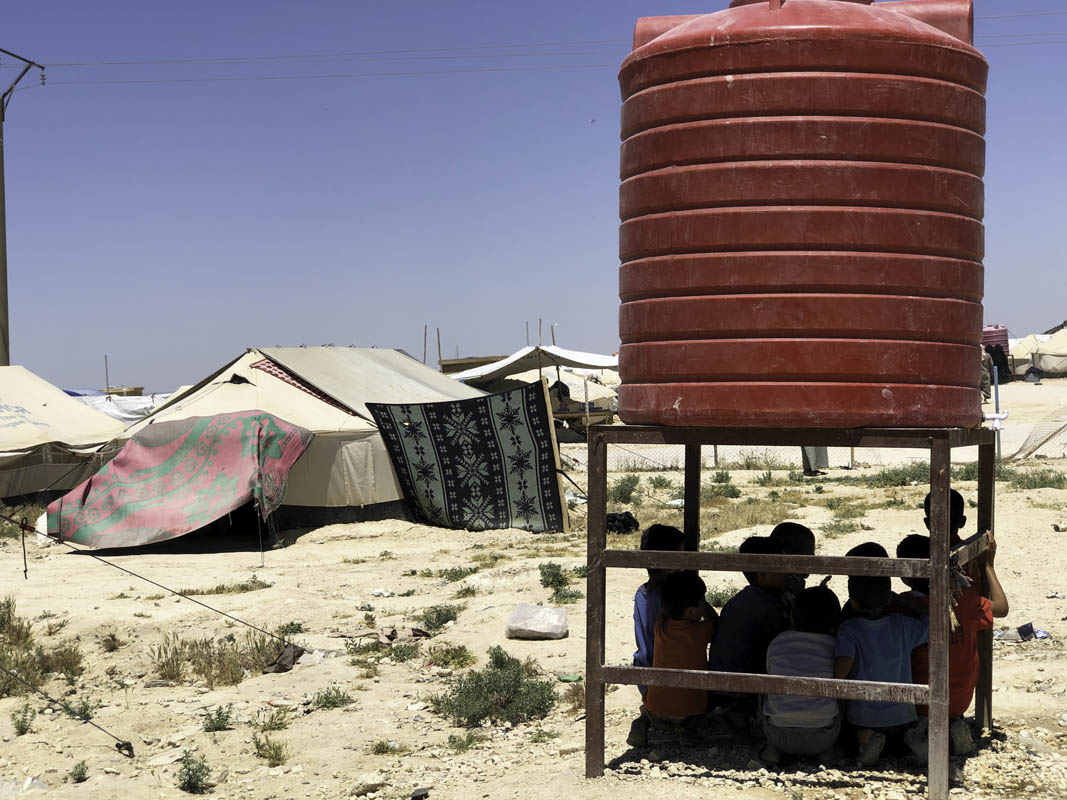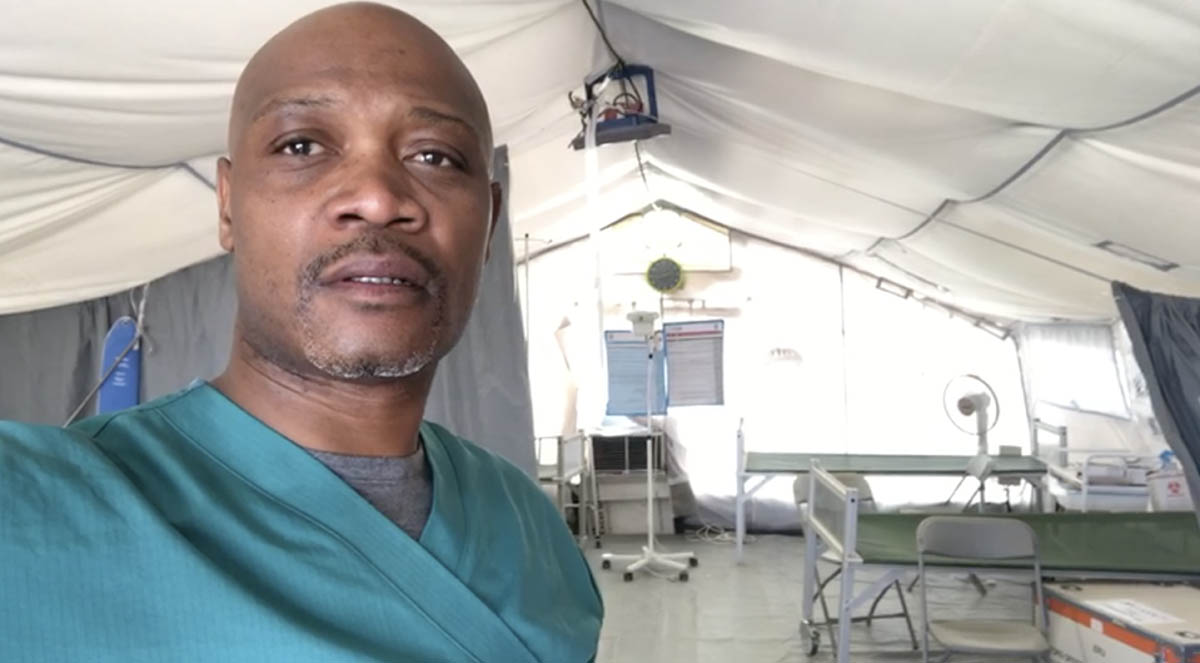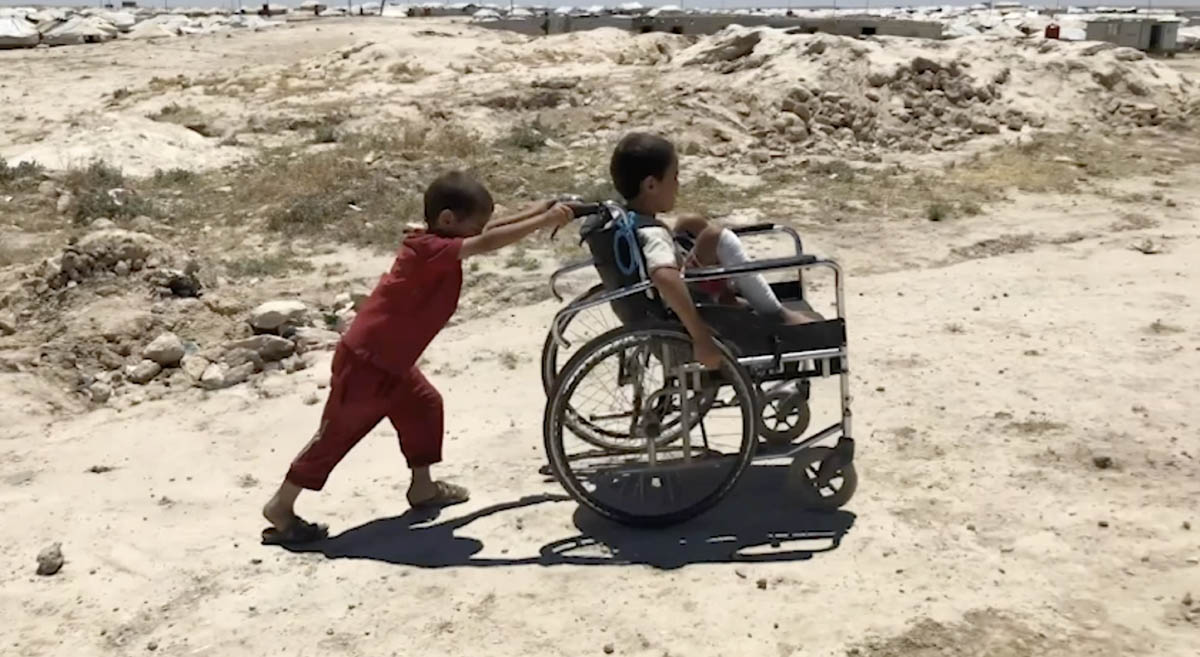‘Double heating’
“Especially with Covid, you have high fever,” he notes. “And then in the heat is too high, so you are double heating. The sun is burning you and your body temperature is too high. That is why now in the isolation centre [built by the ICRC in Spring 2020], we have put in air conditioning to cool down the place.”
Well before the first cases of Covid-19 arrived at the camp, the ICRC, the Syrian Arab Red Crescent and other organizations began raising awareness about how people could protect themselves from this highly infectious disease. More handwashing stations were installed; masks and other protective clothing was handed out; information was printed and distributed, among other things.
But the high temperatures also made it far harder for people to remain isolated inside their tents. “When you have fever probably you have to come outside the tent and be outside at least to get fresh air,” he notes. “And this is worrying in the time of Covid.”
Roughly 80 per cent of the people in the Al Hol camp are women and children and many of them have pre-existing conditions, exacerbated by the conditions caused by years of conflict and displacement.
“We have a lot of patients with these kinds of respiratory infection problems,” he says. “We have a lot of children with asthma, and a few cases of TB also. We are receiving over 100 a day of these kind of patients with lung problems, both children and adults.”
“And when COVID-19 hits, it goes straight to the lungs.”
How does Ahmada deal with working in these tough conditions far from his own home in Finland? He says the kindness and fortitude of the people in the camp, as well as his own professional experience, help keep him focused.
“I am a health professional; I’ve been in health profession for a long time now. And apart from that, I like working with the people. And the people here are really lovely. Always I ask myself, ‘what is the purpose of life?’ and then I came out here just to find out that the purpose of life is just to help somebody.”
 Red Cross Red Crescent magazine
Red Cross Red Crescent magazine 









 Tech & Innovation
Tech & Innovation Climate Change
Climate Change Volunteers
Volunteers Migration
Migration